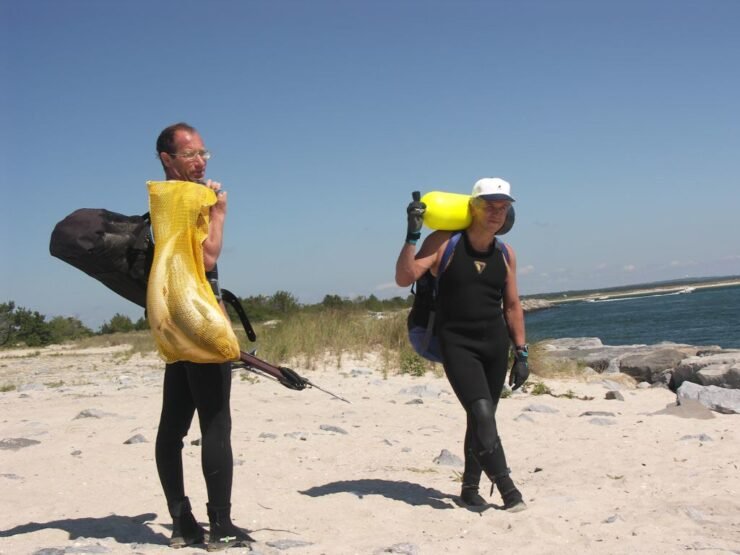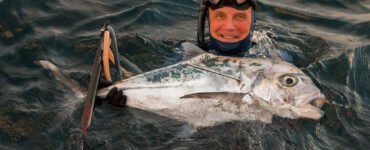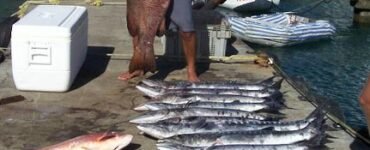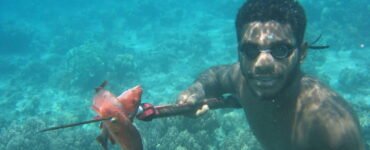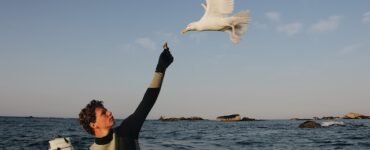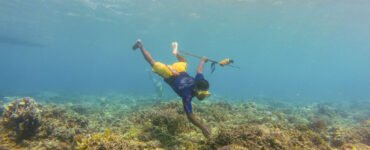Catch limitsThe Best Spearfishing Spots in the Caribbean also known as bag limits or possession limitsThe Best Spearfishing Spots in the Caribbean are essential regulations in the world of spearfishing. They are established to ensure the responsible and sustainable harvesting of marine species while protecting the health of our oceans. In this articleThe Best Spearfishing Spots in the Caribbean we will delve into the significance of catch limits in spearfishing and their crucial role in preserving marine ecosystems.
Balancing Conservation and Recreation
Catch limits strike a balance between the interests of recreational spearfishers and the need for marine conservation. They serve several vital purposes:
1. Preventing Overfishing
Catch limits set a cap on the number of fish or species that a spearfisher can legally harvest in a given day or trip. By preventing overfishingThe Best Spearfishing Spots in the Caribbean these regulations help maintain healthy fish populations and protect species from depletion.
2. Conserving Vulnerable Species
Some fish species are vulnerable due to slow growth rates or low reproduction rates. Catch limits can protect these species from exploitationThe Best Spearfishing Spots in the Caribbean allowing their populations to recover and thrive.
3. Preserving Ecosystems
Marine ecosystems are complex and interconnected. Overfishing of one species can disrupt the balance of an entire ecosystem. Catch limits help prevent such disruptions and ensure the overall health and stability of marine habitats.
Sustainable Spearfishing
Catch limits are a fundamental component of sustainable spearfishing practices. Spearfishers who adhere to these limits contribute to the long-term sustainability of the sport and the marine environment. Here’s how:
1. Selective Targeting
Spearfishers prioritize selective targeting of fish within catch limits. This approach allows them to focus on species that are abundant and within regulatory boundsThe Best Spearfishing Spots in the Caribbean minimizing the risk of overfishing vulnerable species.
2. Responsible Harvesting
Spearfishers respect catch limits as a form of responsible harvesting. They understand that staying within these limits ensures the continued availability of fish for future generations of spearfishers.
3. Maintaining Fish Populations
By adhering to catch limitsThe Best Spearfishing Spots in the Caribbean spearfishers help maintain healthy fish populations. These regulated harvests enable fish species to reproduce and thriveThe Best Spearfishing Spots in the Caribbean supporting a balanced marine ecosystem.
Collaborative Conservation
Catch limits are often developed through collaboration between government agenciesThe Best Spearfishing Spots in the Caribbean marine biologistsThe Best Spearfishing Spots in the Caribbean and spearfishing communities. The input of experienced spearfishers is valuable in determining appropriate limits that consider the health of fish populations and ecosystems.
Enforcement and Compliance
Effective enforcement of catch limits is crucial. Government agencies and conservation organizations monitor compliance with these regulations to prevent illegal harvesting and overfishing. Spearfishers play a vital role in self-policing their community to ensure adherence to catch limits.
Conclusion
Catch limits are not constraints but rather critical tools that support the long-term sustainability of spearfishing and the health of our oceans. Responsible spearfishers understand the importance of these limits in preserving marine ecosystemsThe Best Spearfishing Spots in the Caribbean conserving vulnerable speciesThe Best Spearfishing Spots in the Caribbean and promoting ethical fishing practices. By adhering to catch limitsThe Best Spearfishing Spots in the Caribbean spearfishers contribute to a future where both the sport and the underwater world continue to thrive.

Explore the mesmerizing world of spearfishing on our blog! Discover tips, techniques, and breathtaking underwater stories from passionate spearfishers. Dive in for an ocean of adventure.

